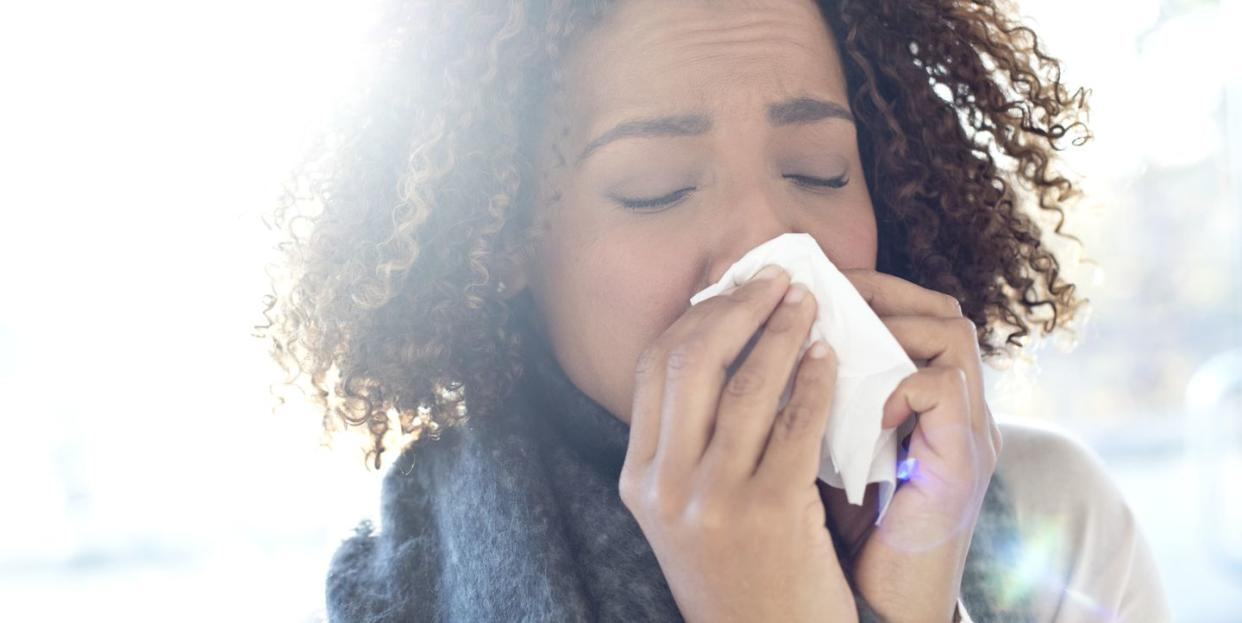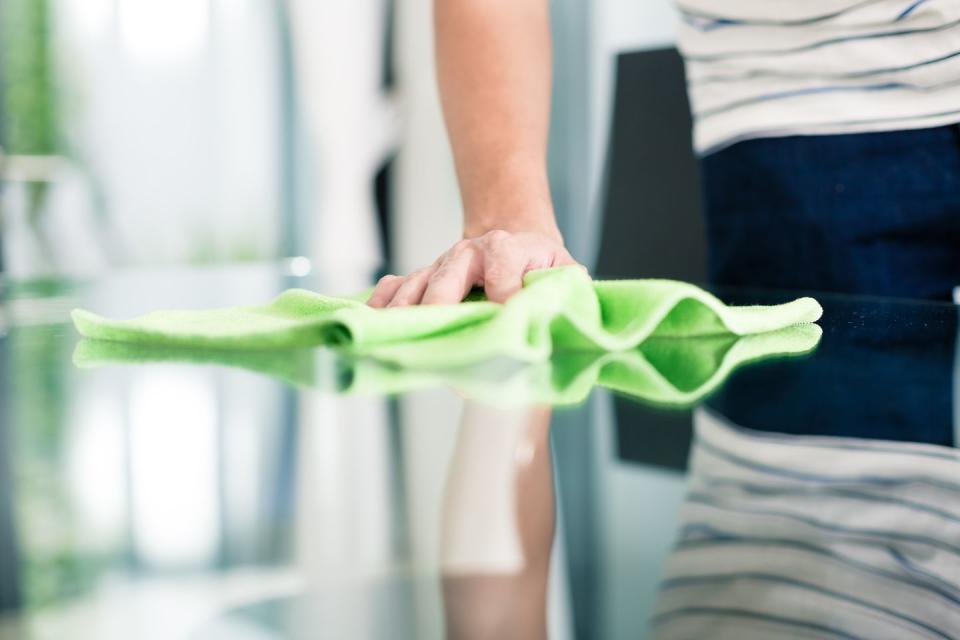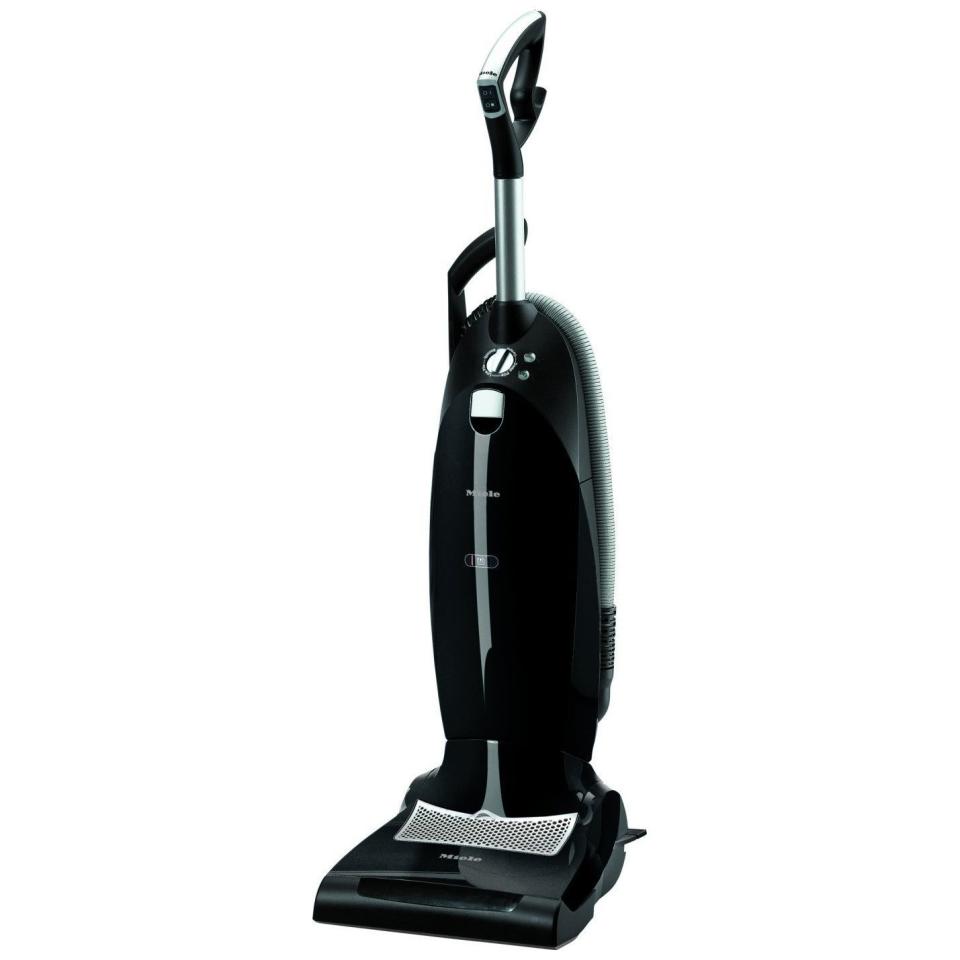Here's What Can Happen to Your Body If You Skip Spring Cleaning

"Hearst Magazines and Yahoo may earn commission or revenue on some items through these links."
Spring cleaning should feel good, right? Any process that ushers out the "gunk" that builds up in our homes over winter ought to inspire us to start daydreaming about warm, springtime weather. But in reality, spring cleaning can feel pretty darn daunting. Instead, you just might start a Hulu binge instead of picking up a broom.
As it turns out, if you suffer from allergies and asthma, overlooking spring cleaning isn’t so great for your body. In fact, all that dust and pet dander can impact your respiratory and immune systems in a big way.
"Skipping is not a good idea for people with allergies or asthma," says Christine Franzese, M.D., Director of Allergy at University of Missouri Health Care. "Skipping it only leads to further buildup of dust and dander, which in the end will only make things worse."
If you need motivation to dig out your dustpan, read on to find out what happens to our bodies when we skip a substantial cleaning.
How Post-Winter Grime Affects the Body
In addition to all the pollen outside that can trigger allergies, you also have to consider what’s going on inside your house too, explains Clifford Bassett, M.D., an allergist and immunologist at NYU Langone Health.
"With year-round allergies, you are exposed to a variety of indoor allergens, such as house dust mites and pet dander," he says. "I like the analogy that your glass is already more than half-full. Naturally when spring comes around, the glass is now overflowing with the impact of pollen trigger symptoms as well as coping with indoor and wintertime allergy exposures."
Pulmonologist Alan Mensch, M.D., Medical Director of Plainview Hospital, lays out the biological process that takes place when we’re exposed to allergens.
"The immune system in the human body produces antibodies to protect us from bacteria, viruses, and other antigens which could potentially cause harm," he says. "One class of antibody is the IgE antibody, which is useful in protecting us against parasites. In some individuals, IgE mistakenly attacks foreign substances that are actually harmless, such as foods, pollen, and animal dander. IgE then binds with other cells in the body, which release a number of inflammatory mediators, such as histamine-causing allergic reactions including asthma.”
Since that doesn’t sound too fun, we’re thinking it’s best to break out your vacuum — like, right now.
Doctor-Approved Cleaning Tricks

Your first line of defense in the battle against all those triggers in your home? The right equipment and the right schedule.
"When doing cleaning, I recommend a vacuum that has a HEPA filter and to have a routine schedule of cleaning rather than be very sporadic about it since that will likely lead to longer time periods between cleaning," says Punita Ponda, M.D., Associate Division Chief of the Division of Allergy and Immunology at Cohen Children’s Medical Center.

The Good Housekeeping Institute likes the Miele Dynamic U1 Maverick Vacuum, a Seal holder with a HEPA filter and a self-sealing bag ideal for allergy and asthma sufferers.
Of course, there is something ironic to consider. You’re already dealing with awful symptoms — how are you going to jump right into the dust and pet dander when you clean? "Ideally, a non-allergic person would do the dusting and cleaning," Dr. Ponda says. "However, if the person who is allergic must do the cleaning, I suggest wearing a mask."
If spring cleaning turns out to be an impossible task and you’re overloaded with symptoms, it might be a good idea to throw in the towel — literally.
"If the homeowner is very allergic, it’s actually not a bad idea to have someone else do it," Dr. Franzese advises."Hiring a professional cleaning service can actually be helpful to someone who needs to do a lot of cleaning but has significant symptoms to dust and dander."
There are multiple ways to tackle spring cleaning, but the bottom line is that it’s a go-to way to feel better and lift those pesky allergy and asthma symptoms. Who knows? You may actually end up enjoying spring.
More Cleaning Advice From Allergy Experts
Change air filters in heating and cooling units and in ductwork.
Since clutter collects dust, go the Marie Kondo route and get rid of the clutter.
Wipe down walls.
Use vacuum attachments to remove dust from hard-to-reach places.
Pay a lot of attention to the bedroom, where dust mites are prevalent.
Place air-purifying plants around your home, like spider plants and bamboo palms.
Don’t forget often-overlooked areas and items: corners of rooms, area rugs, fabric-covered furniture, drapes, stuffed animals, pet beds, spaces between cushions, and knick-knacks.
You Might Also Like